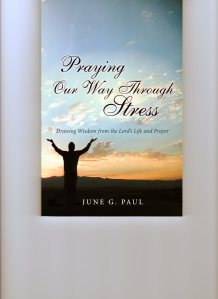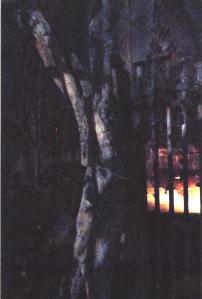 Often Lent is spoken of in terms of repentance and/or forgiveness, and yet those two actions lead to a birthing of new love in our hearts and minds.
Often Lent is spoken of in terms of repentance and/or forgiveness, and yet those two actions lead to a birthing of new love in our hearts and minds.
What are we to repent of? We give up stuff, but what good is giving up something if our minds and hearts aren’t changed? With New and with rebirth we give up old ways of thinking – Jesus began his preaching ministry saying – ‘Repent and believe in the good news.’ Maybe more people would participate in a Lenten discipline or program of some kind if more churches began the season with those words instead of reminding everyone about how wretched we are . . . how we aren’t worthy . . . Think about when John the Baptist told his own followers he wasn’t worthy to untie the thong of Jesus’ sandles – What was Jesus’ response? Jesus told John the Baptist to baptize him. To me this is certainly a message about John the Baptist’s worthiness according to Jesus, according to God. Later Jesus told his disciples that they would receive power when the Holy Spirit came upon them.
So, what do you think about your own baptism? I’ve talked with people over the years who fear they are not worthy to be baptized with water much less the Holy Spirit. And I’ve talked with some people who say they don’t want the Holy Spirit because they don’t want something weird to happen to them. But the power that the Holy Spirit gives us is power to overcome wilderness experiences of temptation that Jesus overcame.
What do you think about forgiveness? So many people talk about the challenges of forgiving other people. I’ve heard people say “I’ll never forgive so and so!” And I’ve heard people say “I can’t forgive myself!” In having conversations over the years I’ve learned that if a person thinks they can’t forgive themselves or other people they often believe that God has not forgiven them. It seems to me that when we experience lack of forgiveness we are experiencing a sort of spiritual death. For our spirits to come alive, we must receive the Holy Spirit, in the same way that Jesus encouraged his disciples to receive the Spirit.
The Spirit helps us to Repent and Believe in the Good News of God’s love and forgiveness towards us and other people. We have not received authority to condemn, we have received a command to forgive. Let your spiritual birth or rebirth begin with forgiving yourself, for seeking forgiveness for your own wrong actions and thoughts and then forgive others.










![Remember[1]](https://powts.files.wordpress.com/2014/03/remember1.jpg?w=225&h=300)